Search Results
Showing results 41 to 60 of 89
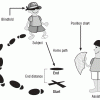
Find Your Way Around Without Visual or Sound Cues
Source Institutions
In this activity, learners play a series of simple games to investigate navigation without visual and sound cues.
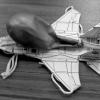
Vectoring: Steering a Plane
Source Institutions
In this two part activity, learners work in pairs or individually to discover how vectoring the thrust from a jet engine affects movement of an airplane.
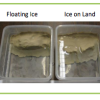
Sea Level: On The Rise
Source Institutions
Learners will understand the relationship between climate change and sea-level rise.

Keep-a-Cube
Source Institutions
In this activity, challenge learners to keep an ice cube from completely melting in 30 minutes. Learners engineer a box or wrap to prevent an ice cube from melting.

Temperature Tactics
Source Institutions
In this activity, learners explore the devices used over time to measure changes in temperature.

Puff Mobile
Source Institutions
In this engineering activity, challenge learners to design a car using only 3 straws, 4 Lifesavers™, 1 piece of paper, 2 paper clips, tape, and scissors.
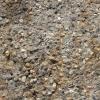
Composites
Source Institutions
In this activity, learners explore how composites work by creating and testing their own composite for an imaginary company.
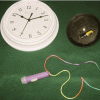
Can Energy be Created or Destroyed?
Source Institutions
In this activity, learners explore conservation of energy by experimenting with a solar cell light device.
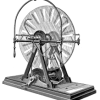
Curious Contraptions
Source Institutions
In this engineering design activity, learners will design, test, and build a “haunting machine” to solve a Sherlockian mystery.
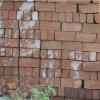
The Squeeze is On
Source Institutions
Each group of learners uses everyday materials, such as paper, toothpicks, and tape to design and construct a structure intended to support the weight of a cinder block for 30 seconds.

Moo Glue
Source Institutions
Using a milk-based recipe, learners create "moo glue" which is basically white school-type glue. The "secret ingredient" in milk that helps make glue is a chemical called casein.

Leaning Tower of Pasta
Learners build structures from spaghetti and marshmallows to determine which structures are able to handle the greatest load.

Air Cannon
Source Institutions
In this activity (page 1 of PDF under SciGirls Activity: Forecasting), learners will construct an air cannon by cutting a hole in the bottom of a bucket and stretching a garbage bag over the other end

Plastics the Second Time Around
Source Institutions
In this activity, learners test and compare the physical properties of thermoplastic polymers. Learners compare different plastics based on their color, degree of transparency, texture, and density.

Determining the Amount of Transpiration from a Schoolyard Tree
Source Institutions
In this activity, learners calculate the number of milliliters of water a nearby tree transpires per day.
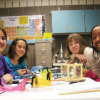
House Warming
Source Institutions
In this physical sciences activity, learners explore how passive solar design increases energy efficiency.

Indicating Electrolysis
Source Institutions
Electrolysis is the breakdown of water into hydrogen and oxygen. This Exploratorium activity allows learners to visualize the process with an acid-based indicator.

Dinosaur Breath
Through discussion and hands-on experimentation, learners examine the geological (ancient) carbon cycle.
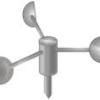
Paper Cup Anemometer
Source Institutions
In this meteorological activity, learners get to build their very own anemometer (instrument for measuring wind speed) using a paper cup.

Portable Sundial
Source Institutions
Learners construct one or more of the following kinds of sundials: a shadow plot, a horizontal sundial, and a diptych sundial.
